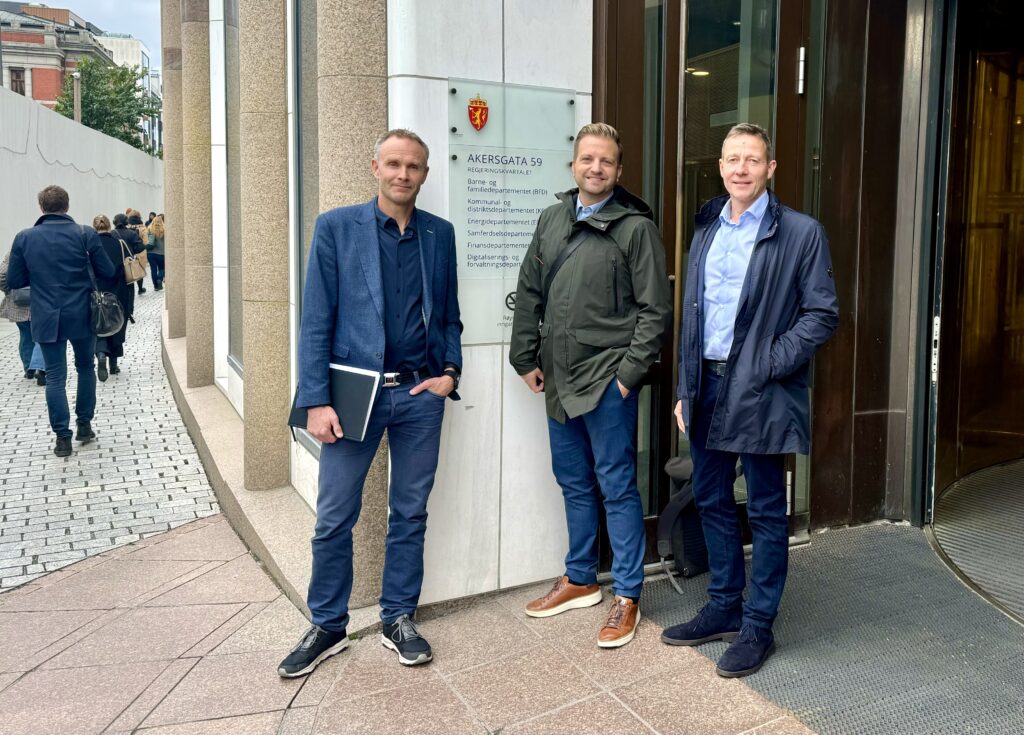The Ministry of Digitization and Administration thanked the Bilimportørenes Landsforening for a constructive meeting, and for valuable information about the consequences of the 2g shutdown.
Telenor and Telia plan to shut down their 2g networks after 2025, and this is a matter BIL’s members are very concerned about. The automatic emergency notification system eCall, which notifies the emergency services and provides valuable information about the car in the event of an accident, will cease to function.
The same applies to app-controlled functionality such as checking the battery status, turning the heating on and off in the car, as well as a number of other 2g-based services. In addition to this, there are a lot of other products and services on the market that will stop working. House and lift alarms, burglary and security alarms, door openers, switchboard systems, parking meters, dams/water management systems and a host of other things.
The problem with Telenor and Telia wanting to shut down their 2g networks here, and thereby show the principle of technological neutrality (that the market should rule), is that EU legislation is technology-specific.
That is to say: The type approval requirement in the EU states that all cars to be sold in Europe must have eCall on 2g.
BIL has worked very actively on this matter in recent months. We have been in contact with the National Communications Authority (Nkom), politicians, other actors in the car industry, actors from other industries, and not least journalists from national media, local media and niche media. In fact, also contacts in Sweden who worked with the problem there.
Before the postponement in our neighboring country, it was pointed out that a risk and impact analysis had not been carried out. Nor has it been done here in Norway. Therefore, no one has a complete picture of the ripple effects of a shutdown.
A recent survey carried out by BIL through its member companies shows that as many as 700,000 cars will be affected in Norway. This does not include foreign vehicles that may have been in Norway at any time.
Although it took some time, we were eventually invited to a meeting at the Ministry of Digitalization and Administration, to which Nkom is subject.
This meeting took place on 14 October, and BIL’s aim with the meeting was twofold:
To contribute a lot of relevant information about the consequences of the shutdown for Norwegian car owners and the car industry, and how it contrasts with Norway’s zero vision.
To bring about an adjournment. At the very least, new type approval requirements will come in 2027, but most preferably so that we harmonize with other European countries. That is, in 2029/2030.
We experienced the meeting as constructive, and both the ministry’s political leadership and leaders from the bureaucracy seemed very interested in as much relevant information as possible.
They knew that the issue is complex and has many sides, but they seemed somewhat surprised at how complex and technical car production is, and how decisive EU legislation is even for Norwegian conditions.
We at BIL are eagerly awaiting the ministry’s further work on the matter. Among other things, they will have meetings with the two major telecommunications operators. We have naturally made our expertise available in the future, and will continue our work so that we here in Norway will keep pace with the rest of the countries around us.

F.v. Trond Helge Myrvang (service marketing manager), Andreas Handeland (communication manager) and Harald Jachwitz Andersen (director) in a meeting at the Ministry of Digitalization and Administration. Photo: BIL
